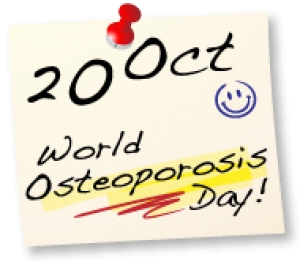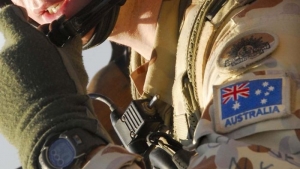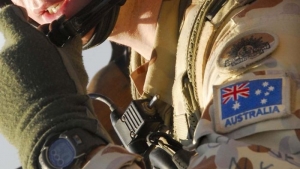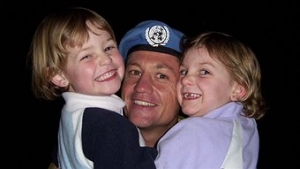Administrator
ALLOSTATIC LOAD
Introduction Allostatic load refers to the cumulative effects of chronic and acute stress on the body. It is the process and the product of ‘wear-and-tear’ on the body and brain. This results from chronic over-activity or inactivity (called dysregulation) of physiological systems that are normally involved in adaption to environmental challenges (McEwen & Gianaros, 2010). The frequency of exposure to these challenges is unique to each individual and individuals accumulate allostatic load at different rates over the life-course. The outcomes of allostatic load can be physiological, psychological, and psychosocial health conditions.
WORLD OSTEOPOROSIS DAY - 20 OCTOBER 2013 - DR ROD BAIN
WORLD OSTEOPOROSIS DAY - 20 OCTOBER 2013
|
Dear Reader, Sunday was World Osteoporosis Day and so it’s worth thinking about this problem in our Defence Community. Osteoporosis presents as fragility fractures but is a seriously under-recognised and under-managed problem, even after such fracture – that is, bone failure events. There are serious misconceptions that may contribute to its not-so-benign neglect. For example, it is usually thought of as a relatively uncommon condition affecting mainly elderly women and mostly associated with hip or spine fractures. This is compounded by ill-founded concerns about rare or very rare side effects of treatment.
Published in
Health
Tagged under
Friday, 11 October 2013 15:14
Physical Side Effects of OversleepingWhen it comes to sleep, can you have too much of a good thing? It's true a good night's sleep is essential for health. But oversleeping has been linked to a host of medical problems, including diabetes, heart disease, and increased risk of death. Researchers are careful to note, however, that two other factors -- depression and low socioeconomic status -- are strongly associated with oversleeping. Those two factors may be the reason for the observed negative health effects. For example, people of lower socioeconomic status may have less access to health care and therefore more undiagnosed illnesses, such as heart disease, which, in turn, may cause oversleeping.
Published in
Research
Tagged under
Friday, 11 October 2013 15:09
Sleep ApneaSleep ApneaSleep apnea is a serious sleep disorder that occurs when a person's breathing is interrupted during sleep. People with untreated sleep apnea stop breathing repeatedly during their sleep, sometimes hundreds of times. This means the brain -- and the rest of the body -- may not get enough oxygen.
Published in
Research
Tagged under
Friday, 11 October 2013 13:55
The Importance of a Strong Social Network - By Leslie Becker-Phelps, PhDWhile most people accept that it’s a good idea to develop a number of friendships, there are times when you might ignore such advice. You might be happy with focusing on work to the exclusion of a social life. Or, you might be too fearful to venture out socially. Or you might feel depressed, preferring isolation to the company of others. At those times, it can be helpful to have a clear understanding about the importance of having a social network. Whenever one of my patients struggles with making social connections, I am reminded of the analogy of a social network to a spider’s web.
Published in
Research
Tagged under
Monday, 23 September 2013 13:37
Effects of deployment on health behaviours in Military Forces: A review of longitudinal studiesEffect of deployment on health beahviours in Military Forces Deployment with combat exposure was the most significant factor affecting health behaviours of military personnel. Excessive drinking among US military personnel increased significantly in those deployed that were exposed to combat, especially among Reserve and National Guard members and in the youngest age groups, but was not affected by deployment without combat exposure. Among British military personnel, total alcohol consumption increased with time, was higher for those deployed compared to non-deployed, and highest in those who experienced war related stress.
Published in
Research
Tagged under
Monday, 23 September 2013 13:37
Effects of deployment on health behaviours in Military Forces: A review of longitudinal studiesEffect of deployment on health beahviours in Military Forces Deployment with combat exposure was the most significant factor affecting health behaviours of military personnel. Excessive drinking among US military personnel increased significantly in those deployed that were exposed to combat, especially among Reserve and National Guard members and in the youngest age groups, but was not affected by deployment without combat exposure. Among British military personnel, total alcohol consumption increased with time, was higher for those deployed compared to non-deployed, and highest in those who experienced war related stress.
Published in
Research
Tagged under
Monday, 23 September 2013 09:58
Living is for Everyone (LIFE)Life is for Living (LIFE)From Dr. Rod Bain. Here are the words of a former soldier, an Iraq veteran who took his life in June. He left behind a powerful suicide note that went viral on the Internet after his family shared it with the media.
Published in
Health
Tagged under
Sunday, 22 September 2013 12:23
Intergenerational Effects on ChildrenThe aim of this review is to explore the effects of military service on the physical, mental and social health of Vietnam veterans’ families with as specific focus on the sons and daughters. First background information will be presented, followed by sections on the methodology, the extent of current research, and the critical appraisal and synthesis of the relevant studies reviewed.
Published in
Research
Tagged under
September 08, 2020
The impact of deployment to Iraq or Afghanistan on partners and wives of military personnelDeployment has well documented psychological consequences for military personnel. To fully understand the human cost of war, the psychosocial impact of separation and homecoming of military personnel on their families must also be considered. Recent arduous…
Read more...
September 08, 2020
The Duration of Deployment and Sensitization to StressThis article addresses conceptual and theoretical issues concerning how the duration of deployment to a combat theater of operations may impact the mental health of deployed troops. A core principle of occupational medicine, critical to this aim, is to…
Read more...
May 20, 2020
Important Research:Intimate Partner Violence Perpetrated by Australian Defence Force Personnel: an exploratory study.My name is Rebecca Pollard from the School of Justice, Queensland University of Technology (QUT) and I’m doing a PhD into Intimate Partner Violence (IPV) Perpetrated by Australian Defence Force (ADF) Personnel. Rebecca Pollard <rebecca.deane@qut.edu.au>;
Read more...
Jul 01, 2016
Partners of Veterans with PTSDJennifer L. Price, PhD & Susan P. Stevens, PsyD Introduction A number of studies have…
Read more...
Feb 21, 2016
Effects Of Repeated DeploymentThe mental and physical health consequences of service in Afghanistan (Operation Enduring…
Read more...
Feb 21, 2016
The Triangle Of CareThe essence of this document is to clearly identify the six key elements required to…
Read more...
Feb 21, 2016
RwandaThis report presents the findings of the Rwanda Deployment Health Study, a Department of…
Read more...
Feb 20, 2016
Who Cares For The Carer?The Dunt Review 1 into mental health services in the Australian Defence Force (ADF)…
Read more...
Jan 04, 2016
Dunt Review Into SuicideWhile there is evidence that military and similar institutionally-based ‘gatekeeper…
Read more...
|

























